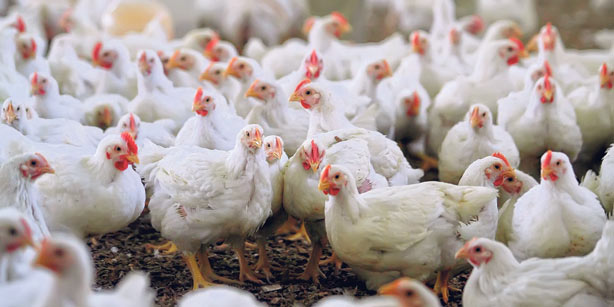Labour and bird flu issues continue to dominate UK poultry concerns

A shortage of labour, the CO2 crisis, avian influenza and new trading arrangements post Brexit continue to cause UK poultry producers major concerns.
That was the stark message delivered by British Poultry Council chairman, Graeme Dear, who said the current 16% vacancy rate in the sector was intensifying wider issues. For example, at the height of Covid-19, an additional 10-20% of the workforce was unavailable.
Speaking to delegates at the annual Northern Broiler Conference, Dear said it was frustrating that labour was still an issue as it was solvable – the government just had to design immigration around the changing needs of the UK economy. Specifically, the sector is currently short of skilled poultry catchers.
To its credit, the government had extended the seasonal labour scheme to protect seasonal demand for poultry meat and Christmas turkeys, but a similar temporary visa scheme was essential for this year and work was ongoing to deliver that objective.
Bird welfare would continue to be an issue for the sector this year, he added, saying there was a role for the high welfare option advocated through the European Chicken Commitment. But it might be rather niche in certain quarters given the rise in food inflation, increase in the cost of living and reliance on food banks. The sector needed to provide safe, affordable nutritious poultry as a solution.
However, the government’s drive to improve bird welfare in transport could end up opening the door to more imports and the British Poultry Council has commissioned the Royal College of Veterinary Surgeons to carry out research in the area, including establishing a database of historic data. The government is keen to lower current dead-on-arrival birds, and the British Poultry Council is particularly worried about the proposed limit of 4 hours of bird travel from farm to slaughter: “We need to know, when exactly does the clock start ticking? Does it involve lairage times?”
Dear added that it might not have as much an impact as the proposed thermo-regulations, which would stop birds being transported if the temperature fell below 5°C or above 25°C unless the trucks were thermo-regulated. This would have a big impact on costs.
With nearly 100 confirmed cases of avian influenza this winter, the sector was especially worried about producers being trapped over movement restrictions.
“The solution is a mutual veterinary agreement with the European Union to address issues with keeping food moving,” he added.
Looking ahead to the rest of the year, Dear said he expected the cost of living to be a major issue for consumers, even more so with the recent Russian invasion of Ukraine. With inflation in the UK expected to peak at around 7.5%, interest rates increasing, energy costs up 54%, fuel prices remaining high and food prices increasing, options to save on household budgets become reduced.
The poultry meat sector offered the best solution. Compared to fish, beef and pork, poultry offered more “bang for its buck” with more than one meal option and significantly lower cost.
Read also
Wheat in Southern Brazil Impacted by Dry Weather and Frosts
Oilseed Industry. Leaders and Strategies in the Times of a Great Change
Black Sea & Danube Region: Oilseed and Vegoil Markets Within Ongoing Transfor...
Serbia. The drought will cause extremely high losses for farmers this year
2023/24 Safrinha Corn in Brazil 91% Harvested
Write to us
Our manager will contact you soon



